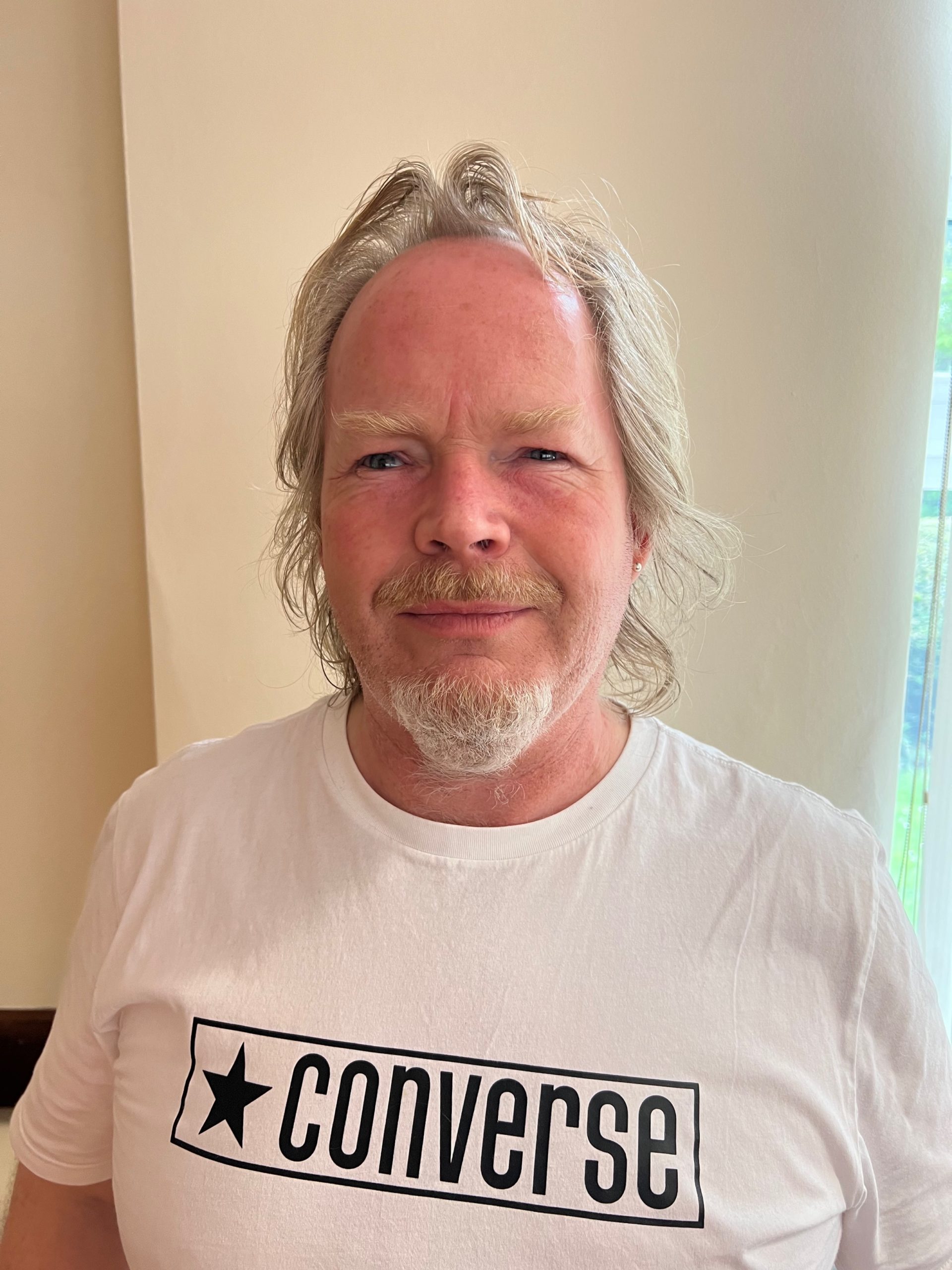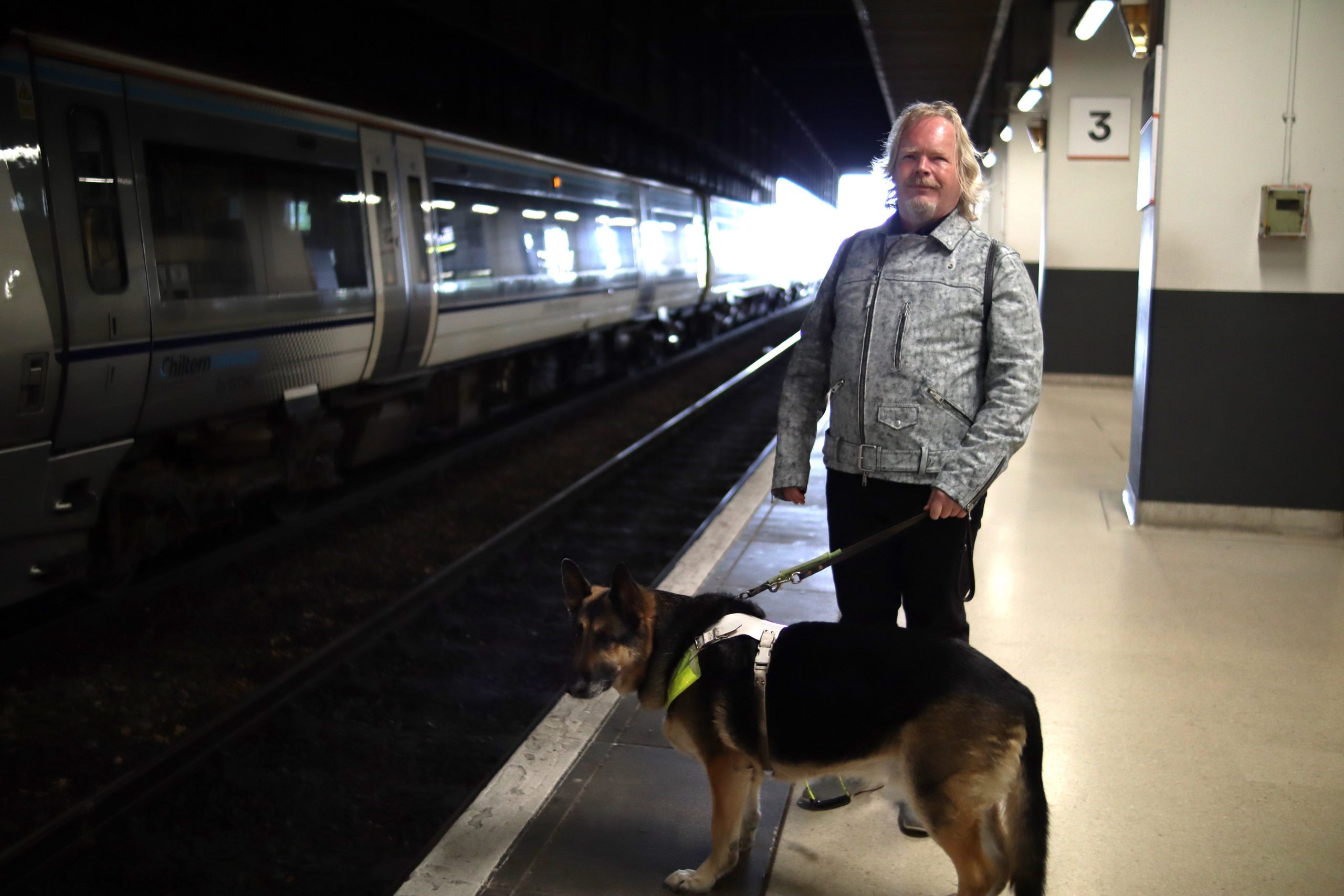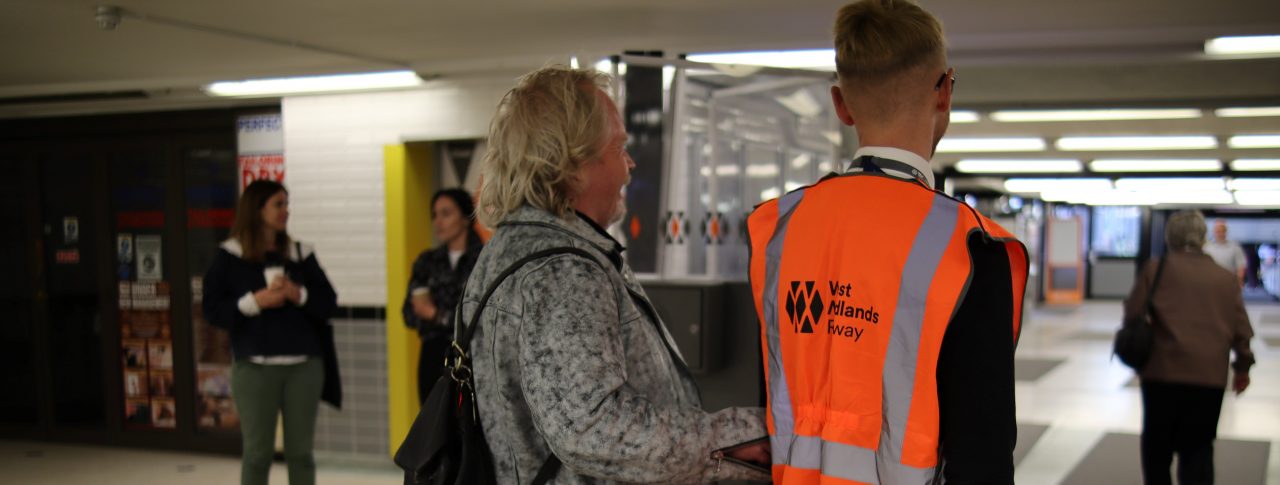Travelling blind: my rail journey as a blind passenger
Sight Loss Council member, Steve, describes what a journey for a blind passenger is like and why making transport accessible is essential so blind and partially sighted (BPS) people can maintain their independence. In this article, he describes his journey from Birmingham University station to Shrewsbury, which involves taking a connecting train at Birmingham New Street.
Sight Loss Councils, funded by Thomas Pocklington Trust, are regional groups led by blind and partially sighted people. Together, they work with organisations to ensure what they do is accessible and inclusive.
Steve’s journey

“To get to the platform, lifts weren’t always in the most obvious places and signage wasn’t always accessible. I found the steps difficult to navigate when busy, and needed assistance to get down the steps to the platform. I also needed assistance to find my train carriage and seat. This is so the assistance at my next destination knows where to locate me to safely support me to my connecting train.
“Another challenge is the type of train that passes through Birmingham University station. These trains all differ in height which means it is difficult to navigate onto the steps safely in order to board the train. Train managers for these trains have to carry an additional ramp for people. This is because the ramps already stored at New Street and University station do not fit the larger gap on the newer trains.”
Arriving at the platform edge
“On the platform, there was no tactile paving on many of the platform edges. This puts me and other blind and partially sighted people at risk of falling over the edge because I do not know where the platform edge is.
“We began our journey through to Shrewsbury and were greeted by assistance staff on our arrival to Shrewsbury. On arriving back at New Street Station, I was taken from the train up to the accessibility lounge. Here, I missed two trains that I could have caught if we were taken straight to our connecting train. This was due to staff shortages and shift changes.”
“One of the main challenges for me, is not knowing whether the assistance staff are going to be at my destination to meet me and safely support me off the train and onto the platform. With staff shortages and shift changes, this has meant sometimes I am not assisted off the train. In addition to this, if a train’s audio announcements are not working, I need to be aware of how many stops we have made in order to ensure I do not miss my destination.”
“Overall, my journey demonstrated that a lot needs to be done to make train stations and travel accessible for disabled people. Ticket offices act as an essential point of contact for blind and partially sighted people to purchase tickets, get guidance and support in otherwise inaccessible stations. We would be unable to find roaming staff to ask for support as we are unable to see them. I also find that help buttons can cause an additional problem. This is because we would be unable to identify the locations of these in order to call for help.”

Steve, Birmingham and Black Country SLC member, standing on a platform with his guide dog
Learn more about our work to #MakeTransportAccessible
Join us
Passionate about making a difference? Want to influence positive change? Our Sight Loss Councils, led by blind and partially sighted volunteers, are recruiting new members. Join us today!
We use our lived experience to create positive change for others. Together, we tackle local issues and work with businesses and service providers to improve the accessibility of their services.
Join us to help ensure visually impaired people in your area can live the lives they want to lead.
You’ll get the opportunity to create positive change for others, meet like-minded people, have a voice, feel valued, receive training and learn or enhance your skills. Whether you’re interested in public speaking or honing your social media skills, there’s something for everyone to get involved in.
Stay in the know
If you want to stay up to date with news from the Sight Loss Councils, sign up to our mailing list.
Publication date: 01 November 2023

